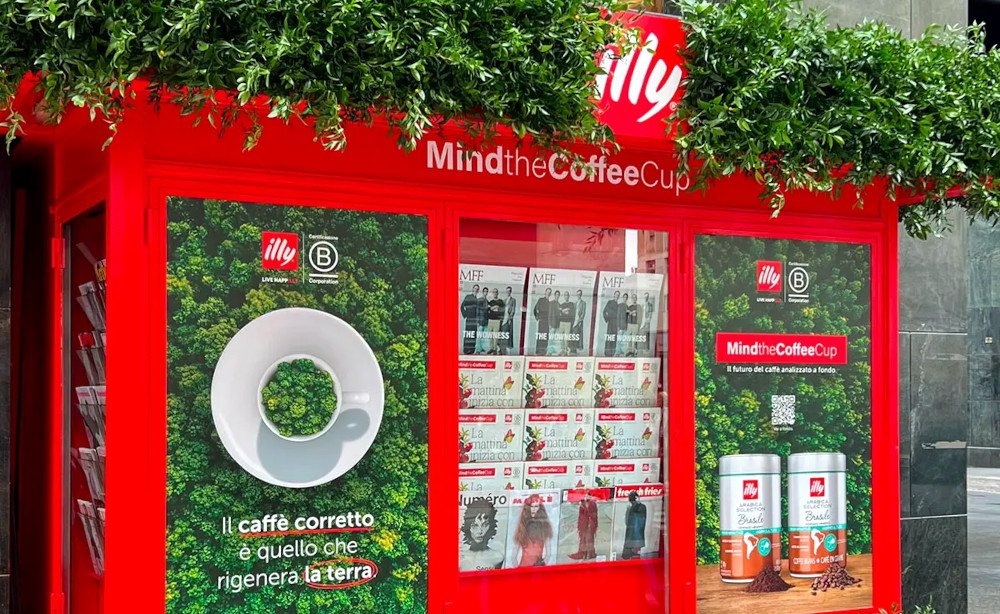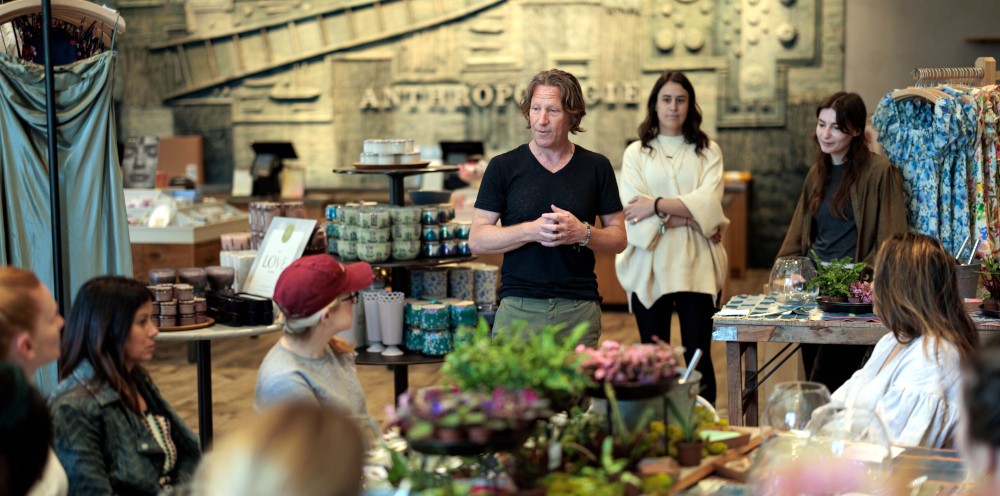Report: Most consumers are unfamiliar with regenerative agriculture
 Image credit: Polina
Zimmerman
Image credit: Polina
Zimmerman
Many members of the public lack familiarity with the farming methods known as
regenerative agriculture, according to the August 2024 Consumer Food Insights
Report
(CFI).
The report from Purdue University's Center for Food Demand Analysis and
Sustainability (CFDAS) surveyed 1,200 consumers across the US on food
spending, consumer satisfaction and values, support of agricultural and food
policies, and trust in information sources.
Regenerative
agriculture
refers to farming methods that improve soil health, carbon capture, biodiversity
and water health. And while pretty much every multinational consumer goods
company with an agricultural supply chain has committed to transitioning its
growers to regenerative
practices
— and many are raising awareness of these efforts through
campaigns,
metaverse
games
and more — roughly 43 percent of survey respondents said they were still "not at
all familiar" with the term "regenerative agriculture," and another 28 percent
are only "slightly familiar."
"This reveals an opportunity for producers and industry leaders interested in
expanding regenerative agriculture practices in their operations to clearly
communicate to consumers what regenerative agriculture means to their
operations," said Joseph
Balagtas — professor of
agricultural economics at Purdue, CFDAS director and the report's lead author —
echoing Purdue professor Brenna
Ellison’s recent
assertions
about the importance of clear consumer education on the subject if regenerative
agriculture is going to be more than a buzz phrase.
After presenting respondents with the broad definition of regenerative
agriculture,
CFDAS researchers gauged support for or opposition to the practice in the
context of four hypothetical scenarios: The first two scenarios involved
practicing regenerative agriculture on US farms and the voluntary adoption of
its methods by farmers; the other two related to industry or government plans
that provide financial incentives for adopting the practices but that would
result in higher prices or taxes to pay for the incentives.
"While consumers say they generally support regenerative agriculture
initiatives, the level of support goes down when given additional information
about the cost," Balagtas said. An education policy study published in
2018
revealed a similar result in the context of spending on education.
"Understandably, food policy is likely to be less popular when it comes at the
expense of consumers — who are already dealing with high food
prices.”
For the consumers surveyed, affordability outweighs other benefits of
regenerative agriculture including improving soil health or reducing water use.
"The benefits of regenerative agricultural practices come at a cost, part of
which may be borne by food consumers or taxpayers. Advocates of regenerative ag
will need to consider the willingness of consumers or taxpayers to pay for those
practices," Balagtas said.
Other findings
The new CFI Report also assesses how educational differences potentially
correlate with certain CFI indicators — such as food
security,
values, behaviors and beliefs.
CFDAS researchers asked respondents to allocate 100 points to six food
attributes based on their importance when grocery shopping. Taste and
affordability have been the most important attributes for the nearly three years
that the center has tracked these data.
"Among food values, nutrition is a distant third — and social and environmental
sustainability are least important," said Elijah
Bryant, a survey research analyst at
CFDAS and a co-author of the report.
Consumers who have received at least a four-year college degree place more value
on food nutrition relative to those with little or no college education; the
latter prioritize food affordability.
"We observe higher rates of food insecurity among those with lower levels of
education, with 31 percent of those earning a high school degree or less
reporting household food insecurity," Bryant explained. "As education is
correlated with income, the food value and security findings underscore the
importance of ensuring our food system is able to supply nutritionally adequate
foods at affordable prices. Otherwise, consumers may shift more of their
purchasing focus away from the nutritional value of their food in favor of
affordability."
Consumer response to statements about the food system also reveal differences
according to educational attainment. Despite scientific
evidence
showing the safety of genetically modified
foods,
over one-third of those with a two-year college degree or less disagree with the
statement that foods derived from GMOs are safe to
eat. However, 41 percent of four-year degree earners and 51 percent of
graduate-degree earners agree with the statement.
The CFDAS trust index further revealed that adults with less education tend to
trust family members or friends as sources of information about healthy and
sustainable foods, while highly educated consumers to a greater degree trust
organizations such as the American Medical Association and the Food and
Drug Administration. All four groups tend to be less trusting of the media and
fast-food chains regarding food matters.
illycaffè’s ‘Mind the Coffee Cup’ project aims to engage public on regenerative ag
 Image credit: Business
People
Image credit: Business
People
Meanwhile, in celebration of International Coffee
Day (October 1), Italian family-owned
coffee brand illycaffè has launched “Mind the Coffee
Cup: The Future of Coffee Examined in Depth”
— a project designed to inspire collaborative efforts in developing sustainable
solutions to climate proof coffee production.
Coffee is more than just a beverage; it is a beloved ritual in the lives of
millions. Every day, over three billion cups are consumed globally; and the
coffee industry supports 25 million farming families. As this critical crop is
increasingly threatened by climate change — a growing number of industry giants,
startups and researchers are hard at work on solutions that will safeguard
coffee production worldwide for the long term.
For its part, illycaffè has long been a champion of regenerative agriculture
practices — which not only ensure a sustainable income for farmers but also help
to secure the future of coffee. Illycaffè says its Arabica Selection Brasile
Cerrado
Mineiro,
certified by regenagri®, is the first coffee made
entirely from regenerative agriculture.
Arabica Selection Brasile Cerrado Mineiro is the product of a longstanding
partnership between illycaffè and the Cerrado Mineiro Producers
Federation — which have worked together to
find and implement best practices for adapting to, mitigating and regenerating
ecosystems affected by climate change.
“To safeguard coffee cultivation, it is crucial to support farming communities
in adopting sustainable agronomic practices and investing in research,” said
Cristina Scocchia, CEO of
illycaffè. “On International Coffee Day, we seized the opportunity to promote
our ‘Mind the Coffee Cup’ campaign — aimed at raising consumer awareness about
the importance of developing sustainable agricultural and social models. Only by
doing so can we continue to enjoy this extraordinary beverage while preserving
the rich cultural heritage it embodies.”
To increase consumer awareness and understanding of the importance of such
initiatives, this month, illycaffè will promote “Mind the Coffee Cup” in cities
worldwide through both physical and digital channels:
-
In Milan, until October 14, the newsstand in Piazza San Babila will
be transformed into a café where visitors can enjoy coffee produced entirely
from regenerative agriculture while learning more about the project through
special publications. Additionally, the San Babila metro station will be
completely redesigned by illycaffè, offering passengers a unique journey
into the future of coffee. Throughout October, illy’s directly managed
stores and select bars and restaurants in Milan — including the
Michelin-starred Andrea Aprea — will
serve Arabica Selection Brasile Cerrado Mineiro.
-
In Seoul, a special tasting with 4 exclusive recipes based on Arabica
Selection Brasile Cerrado Mineiro will be organized to highlight the
different phases of the coffee plant's life cycle.
-
Selected illy customers in France, Germany, the Netherlands, the
United Kingdom and the United States will also be activated.
The project will also extend to educational and entertaining content available
on digital platforms including Meta, TikTok and YouTube.
Kiss the Ground launches brand partnerships program
 Kiss the Ground CEO Evan Harrison speaks to Anthropologie employees | Image
credit: Kiss the
Ground
Kiss the Ground CEO Evan Harrison speaks to Anthropologie employees | Image
credit: Kiss the
Ground
Kiss the Ground — a nonprofit promoting
regenerative ag as a viable solution for our wellness, water and
climate crises through
storytelling
and education — is also
working to address the lack of widespread consumer awareness and understanding
through its new Partnerships
Program,
designed to engage industry-leading brands seeking to make an impact.
Building on existing partnerships with brands including Mars
Petcare’s
Nutro
brand,
Kiss the Ground’s new program aims to continue inspiring companies and consumers
to recognize the benefits of regenerative agriculture for planetary and human
wellness.
“It’s incredibly rewarding partnering with companies spanning various
industries, who are all aligned as it pertains to doing their part in promoting
regeneration,” says Kiss the Ground CEO Evan
Harrison. “The creativity and energy
levels are palpable as they dive in deeper with us, and in turn, the messages
reach new audiences in an authentic and impactful way.”
Businesses have a significant opportunity to influence the regenerative
movement. With growing interest from employees, boards and shareholders in
regenerative agriculture, Kiss the Ground guides earnest companies in engaging
in the conversation responsibly.
“On the one hand, regenerative agriculture makes so much
intuitive sense: We take care of the land and it will take care of us,” says
Carolyn Gahn, Senior Director,
Mission & Advocacy at new partner Applegate — the
US’s leading natural and organic meat brand, which earlier this year
committed to transition its entire line of grass-fed beef hot dogs to beef
raised on verified regenerative
grasslands
by the end of 2025. “But how exactly healthy soil makes such a big difference
can be hard to explain, especially to consumers who are so far removed from food
and farming. The team at Kiss the Ground inspires us with their passionate and
creative storytelling about this essential movement.”
In addition to helping businesses join the conversation and build awareness,
Kiss the Ground’s Partnerships Program enables supporters’ donations to directly
increase regenerative agriculture acreage. Every $100 donation goes toward
working directly with farmers, consultants and partners to catalyze the
transition of 10 acres into regeneratively farmed land.
“We are incredibly inspired by the work our friends at Kiss the Ground have been
doing and are in awe of their ability to inspire millions of people across the
country to participate in the regenerative movement,” says Elizabeth Preis,
Chief Marketing Officer at fashion and lifestyle brand
Anthropologie
— which will work with Kiss the Ground on internal education and storytelling.
Kiss the Ground invites organizations of all kinds to get in touch to discuss
how they can support regeneration and drive meaningful change.
Get the latest insights, trends, and innovations to help position yourself at the forefront of sustainable business leadership—delivered straight to your inbox.
Sustainable Brands Staff
Published Oct 2, 2024 8am EDT / 5am PDT / 1pm BST / 2pm CEST